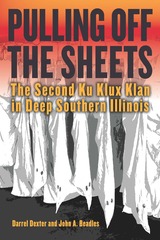
This edition is the first that treats Hamlet as the work of a philosophical poet concerned with knowing the nature of the world, particularly the human world. Where conventional editions lift the play out of its specific setting and analyze it in the light of the social, cultural, and political circumstances of Elizabethan England, Jan Blits takes the play’s dramatic setting of early Renaissance Denmark as indispensable to understanding its rich meaning. In providing notations and commentary on Hamlet, Blits sets aside the historicist principle or prejudice, pervasive throughout literary studies today. Blits, by contrast, strives to understand the play entirely on its own terms. He inflicts no literary or philosophic theory—no parochial professional preconceptions—upon the play. Instead, he aims to be fully receptive to what Shakespeare wrote and try to draw out of the play the substance that he deliberately put into it. His treatment of Horatio is particularly stunning in this regard.
Though they differ from each other, there are two generally trustworthy texts of Hamlet—namely, the Second Quarto (1604–5) and the Folio (1623). Blits does not consult the First Quarto (1603), which contains a much different dialogue, some different character names, and omits some famous passages. Blits points out important variations and refrains from pronouncing which are clearly right or wrong. He omits references to secondary works (including his own) as distractions from the play itself. The Bibliography lists many primary and secondary readings that readers will find helpful. He follows the line-numbering of the New Cambridge Shakespeare Edition, edited by Philips Edwards.
Teachers and students of Shakespeare will find a valuable resource in Blits' new edition of Hamlet, which brings readers as close to the mind and heart of the real Shakespeare as possible and remains untouched by the fingerprints of literary theory and other mechanisms unknown and inconsequential to Shakespeare. This is also an indispensable tool in helping teachers in one of the greatest challenges of the classical classroom––namely, how to teach Shakespeare?

"This edition of A Midsummer Night’s Dream takes the comedy seriously. Like my previous Hackett editions, it gives full weight to Shakespeare’s dramatic setting, which other editors (and scholars) almost always ignore or at least fail adequately to consider. Ancient Athens is the core, not the mere background, of Midsummer Night's Dream. As we shall see, Shakespeare focuses, in particular, on the love of the beautiful and the triumph of learning and art, along with the rise of democracy, which, as Pericles’ famously claims, are the hallmarks of Athens. 'We are lovers of the beautiful with thrift, and lovers of wisdom without softness' (Thucydides, The Peloponnesian War, 2.40.1). […]
Failure to consider classical Athens as central to Midsummer Night's Dream will cause a reader to miss not only the play’s remarkable substance, but much of its sparkling comedy as well. Far from impeding the play’s humor, focusing on Athens helps to bring out multi-layers of comedy that Shakespeare put there."
READERS
Browse our collection.
PUBLISHERS
See BiblioVault's publisher services.
STUDENT SERVICES
Files for college accessibility offices.
UChicago Accessibility Resources
home | accessibility | search | about | contact us
BiblioVault ® 2001 - 2024
The University of Chicago Press









